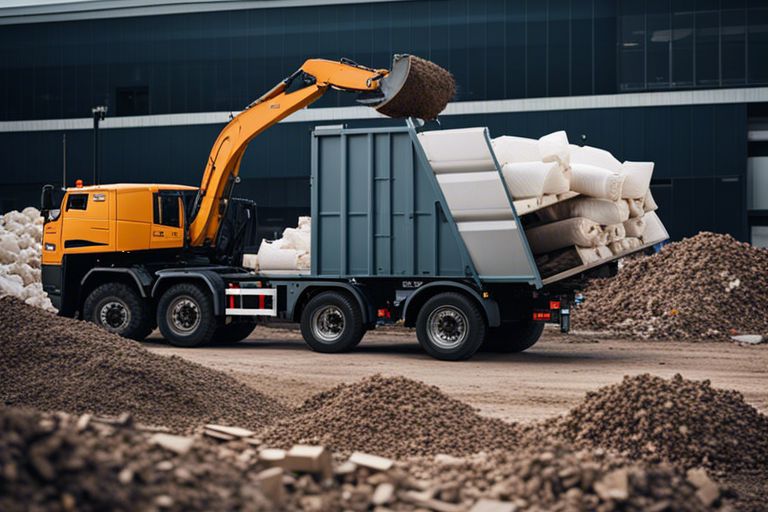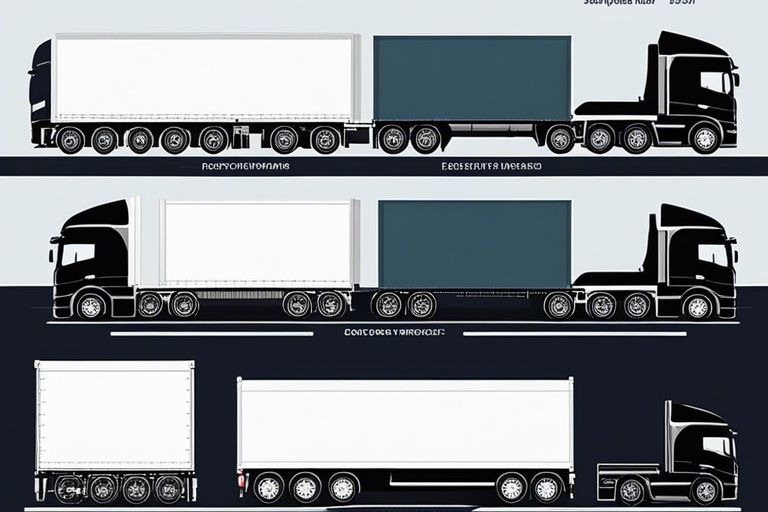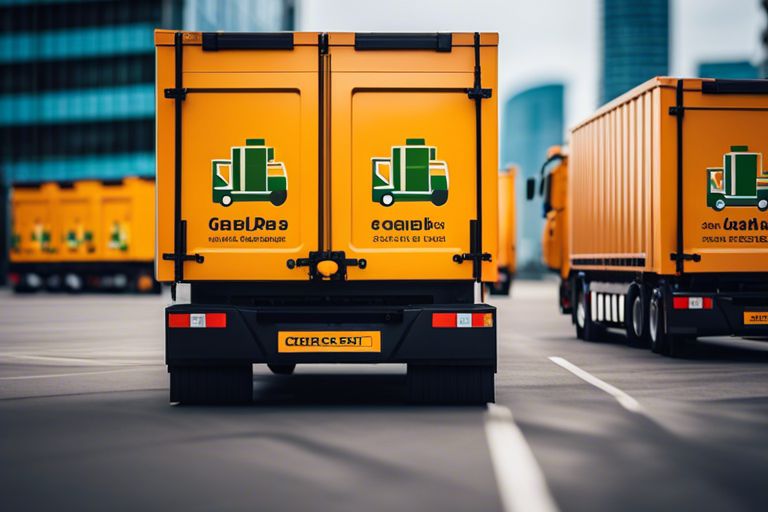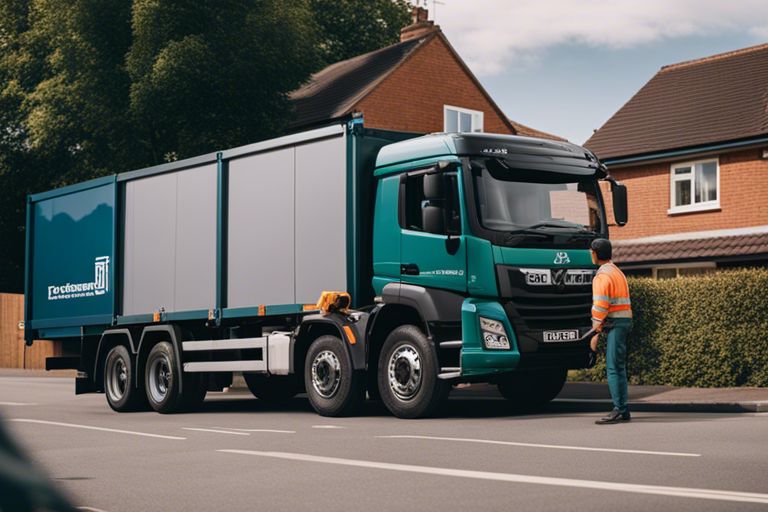Oftentimes the disposal of electronic waste is overlooked, yet it poses serious environmental and health risks. The UK has established strict regulations regarding the proper disposal of electronic waste, aiming to reduce the impact on the environment and human health. In this blog post, we will delve into the key aspects of the UK’s electronic waste disposal regulations, providing you with the information needed to ensure compliance and responsible management of electronic waste. Understanding and adhering to these regulations is crucial for businesses and individuals alike, as improper disposal can lead to toxic pollution, contamination of water sources, and detrimental effects on wildlife and ecosystems.
Key Takeaways:
- Compliance: It is essential for businesses to comply with the UK’s electronic waste disposal regulations to avoid penalties and legal implications.
- WEEE Directive: The Waste Electrical and Electronic Equipment (WEEE) Directive sets out the requirements for the treatment, recovery, and recycling of electronic waste in the UK.
- Producer Responsibility: Producers of electronic equipment have a responsibility to finance the treatment, recovery, and recycling of their products at the end of their life cycle.
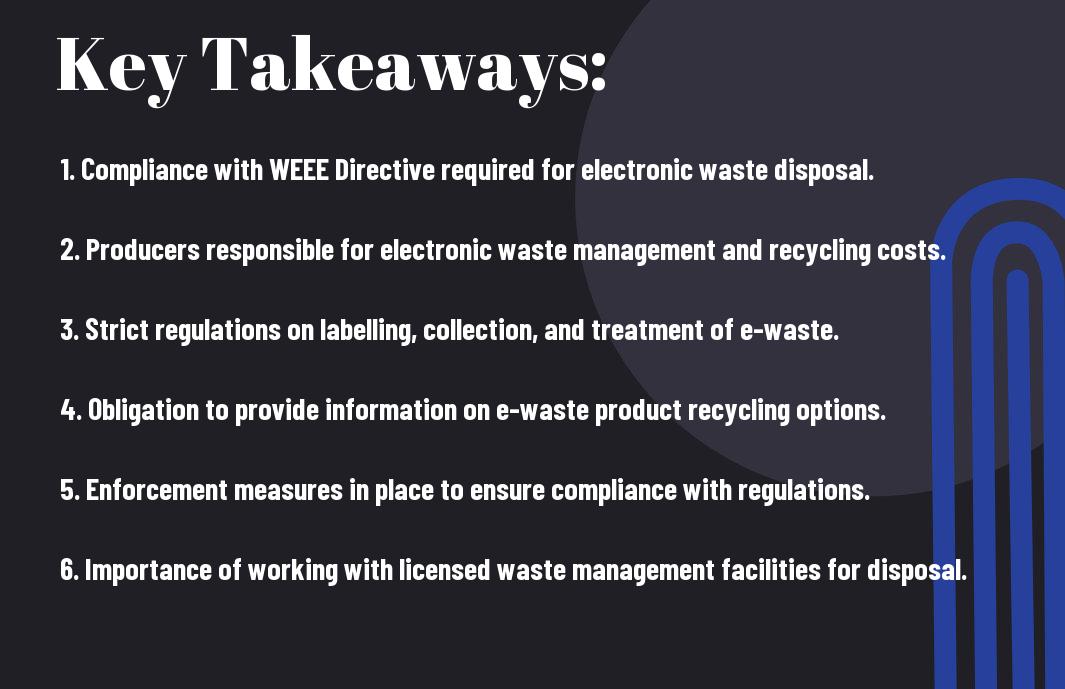
Understanding UK E-Waste Regulations
In the United Kingdom, electronic waste disposal is regulated by the Waste Electrical and Electronic Equipment (WEEE) Directive. This directive aims to reduce the amount of electronic waste that ends up in landfills and to promote the recycling and responsible disposal of electronic equipment.
The WEEE Directive
The WEEE Directive, which stands for Waste Electrical and Electronic Equipment Directive, was introduced in 2003 and subsequently recast in 2012. It requires the producers and distributors of electronic equipment to take responsibility for its proper disposal and recycling at the end of its life cycle. The directive also sets targets for the collection, recovery, and recycling of electronic waste in order to reduce the environmental impact of these products.
Responsibility of Producers and Distributors
Producers and distributors of electronic equipment are responsible for financing the collection, treatment, and recycling of electronic waste. They are also required to provide information to consumers about how to properly dispose of their electronic equipment and must ensure that their products are marked with the “crossed-out wheeled bin” symbol, indicating that they should not be disposed of with general household waste.
It is essential for producers and distributors to comply with these regulations to avoid potential fines and damage to their reputation. The responsibility for ensuring the sustainable disposal of electronic equipment lies with them, and failure to do so can have serious environmental consequences.
Compliance for Consumers and Businesses
Consumers and businesses in the UK are required to dispose of their electronic waste through designated collection facilities. They are also encouraged to consider the environmental impact of their electronic equipment and to support sustainable disposal methods. Businesses, in particular, need to keep accurate records of their electronic waste disposal and ensure that it is handled by authorised treatment facilities.
Compliance with these regulations is crucial in order to protect the environment and prevent the negative effects of electronic waste on human health. By following the guidelines for responsible disposal, consumers and businesses can contribute to a more sustainable future.
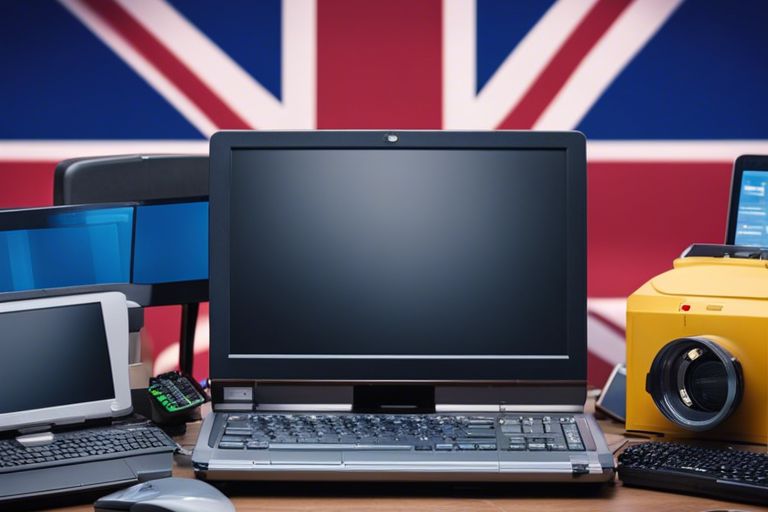
Collection and Disposal Methods
When it comes to electronic waste disposal in the UK, it is crucial to understand the collection and disposal methods in place. The UK’s Waste Electrical and Electronic Equipment (WEEE) regulations outline the requirements for the collection and responsible disposal of electronic waste. You can find a comprehensive list of electrical and electronic equipment (EEE) covered by the regulations here.
Local Council Services
Local councils across the UK provide electronic waste collection services for households and small businesses. They organise regular collections of electronic waste, including old appliances, computers, and other electronic devices. It is important to utilise these services to ensure that electronic waste is disposed of responsibly and does not end up in landfill sites.
Furthermore, some local councils offer drop-off points for electronic waste, making it convenient for residents to dispose of their old electronic items in an environmentally friendly manner. This approach helps to reduce the amount of electronic waste in circulation and prevent harmful substances from leaching into the environment.
Takeback Schemes and Retailer Responsibilities
Takeback schemes and retailer responsibilities play a vital role in electronic waste disposal. Many retailers in the UK operate takeback schemes, where they accept old electronic items from customers when they purchase new products. This initiative not only ensures the responsible disposal of electronic waste but also promotes the recycling and reuse of electronic materials.
Under the WEEE regulations, retailers are obligated to take back old electronic items from customers free of charge when they buy new ones. This responsibility encourages retailers to actively participate in electronic waste management and minimises the environmental impact of electronic waste disposal.
It is important to note that the improper disposal of electronic waste can have harmful implications for the environment and human health. Therefore, it is essential to follow the necessary collection and disposal methods outlined by the WEEE regulations to minimise the negative impact of electronic waste on our surroundings.
Penalties and Enforcement
When it comes to electronic waste disposal regulations in the UK, compliance is crucial. The penalties and enforcement of these regulations are designed to ensure that businesses and individuals adhere to the prescribed guidelines. Failure to comply can result in significant consequences.
Fines and Legal Consequences
Businesses found to be in breach of electronic waste disposal regulations may face hefty fines and legal repercussions. The Environment Agency has the authority to issue fines of up to £50,000, or even impose custodial sentences for serious offences. It is essential for organisations to fully understand and adhere to the regulations to avoid such severe penalties.
Case Studies of Enforcement Action
Several cases have been documented in the UK where businesses have faced enforcement action due to non-compliance with electronic waste disposal regulations. These case studies provide valuable insights into the repercussions of disregarding the guidelines. Some notable examples include:
- Case 1: In 2018, a company was fined £30,000 for improper disposal of electronic waste, resulting in environmental damage and public health risks.
- Case 2: A small business was served with a £10,000 fine for illegally exporting electronic waste to developing countries, violating international laws.
These enforcement actions demonstrate the seriousness with which non-compliance is treated and the importance of adhering to electronic waste disposal regulations in the UK.
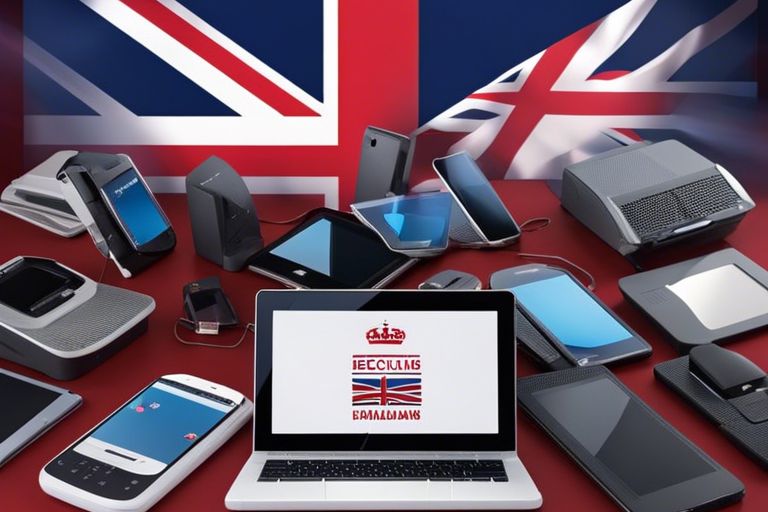
Best Practices in E-Waste Management
When it comes to e-waste management in the UK, it’s crucial to follow the best practices to ensure proper disposal and recycling. As the e-waste crisis continues to grow, it’s essential for individuals and businesses to become more aware of the impact of improper disposal and take proactive steps to address the issue.
For a comprehensive understanding of the e-waste crisis in the UK and how to recycle electronic waste responsibly, check out our infographic on The E-waste Crisis in the UK and How to Recycle.
Recycling and Recovery Techniques
Implementing effective recycling and recovery techniques is vital in reducing the environmental impact of e-waste. Through the use of advanced sorting and separation technologies, valuable materials can be extracted for reuse, while hazardous substances are safely disposed of. It’s crucial to promote responsible recycling practices to minimise the negative effects of e-waste on the environment.
Innovation in E-Waste Processing
The continuous development of innovative e-waste processing technologies is vital for effectively managing electronic waste. These advancements enable the extraction of valuable resources from e-waste, contributing to circularity and sustainability in electronics manufacturing. Smart recycling solutions and automated disassembly processes are revolutionising the e-waste industry, offering new ways to handle electronic waste and promote a more sustainable future.
Furthermore, collaborations between industry stakeholders and government initiatives play a pivotal role in fostering innovation and driving positive change in e-waste management practices.
Navigating the UK’s Electronic Waste Disposal Regulations
In conclusion, navigating the UK’s electronic waste disposal regulations can be a complex task, but it is necessary in order to protect the environment and comply with the law. Understanding the various regulations, such as the Waste Electrical and Electronic Equipment (WEEE) Directive and the Hazardous Waste Regulations, is crucial for businesses and individuals alike. Failure to comply with these regulations can result in hefty fines and damage to the environment. By staying informed and working with licensed waste management companies, it is possible to responsibly dispose of electronic waste in accordance with UK regulations. It is important for all stakeholders to recognise their role in managing electronic waste and to take proactive steps to ensure that it is disposed of safely and legally.
FAQ
Q: What are the UK’s Electronic Waste Disposal Regulations?
A: The UK’s Electronic Waste Disposal Regulations are a set of laws and guidelines that dictate how electronic waste should be handled, recycled, and disposed of in the United Kingdom.
Q: Who is responsible for complying with these regulations?
A: Producers, distributors, and consumers of electronic equipment are all responsible for complying with the UK’s Electronic Waste Disposal Regulations. This includes manufacturers, retailers, and individual consumers.
Q: What are the penalties for non-compliance with these regulations?
A: Non-compliance with the UK’s Electronic Waste Disposal Regulations can result in financial penalties, legal action, and damage to a company’s reputation. It is imperative to adhere to these regulations to avoid such consequences.
Q: How can electronic waste be properly disposed of in the UK?
A: Electronic waste can be properly disposed of in the UK through authorised waste management and recycling facilities. It is important to ensure that electronic waste is recycled and disposed of in an environmentally-friendly manner to comply with regulations.
Q: Are there any exemptions to these regulations?
A: Certain exemptions may apply to small producers or specific types of electronic equipment. However, it is essential to consult with the appropriate regulatory bodies to determine if exemptions apply to your specific situation.


